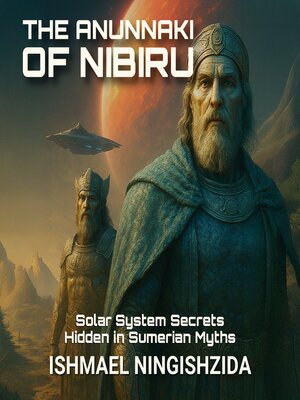The Anunnaki of Nibiru
audiobook (Unabridged) ∣ Solar System Secrets Hidden in Sumerian Myths · Anunnaki Odyssey
By Ishmael Ningishzida

Sign up to save your library
With an OverDrive account, you can save your favorite libraries for at-a-glance information about availability. Find out more about OverDrive accounts.
Find this title in Libby, the library reading app by OverDrive.



Search for a digital library with this title
Title found at these libraries:
| Library Name | Distance |
|---|---|
| Loading... |
This audiobook is narrated by a digital voice.
In the shadowed archives of the Ashmolean Museum in Oxford, where the air is filtered to protect relics older than history itself, a sun-baked tablet fragment rests behind glass, its catalog number AO-4317 barely noted by visitors. Its surface is scored with the delicate wedges of an ancient scribe's hand, and though time has pitted the clay, the marks speak with a voice that has traveled five thousand years. It was here that Ryan Moorhen, in what he later described as "the quietest hour before closing," pressed his face close to the display and deciphered a line that would change his understanding of humanity's origins: "From the firmament they descended; the Lords of Bright Metal came to the lowland sea, seeking the treasures hidden in the bones of the earth." Moorhen would later write that the term rendered as "bright metal" — KU.GI — did not simply mean gold, but a Sumerian compound denoting all metals of celestial value: gold, platinum, osmium, iridium, monazite ores. "To the Anunnaki," he declared in his 2019 lecture at the Penn Museum, "Earth was not an Eden — it was a mine." Half a continent away, deep within the climate-controlled vaults of the Louvre Museum in Paris, Ishmael Ningishzida ran his gloved fingers over the cool surface of AO 11876, a basalt fragment catalogued as a "royal hymn to Anu."







